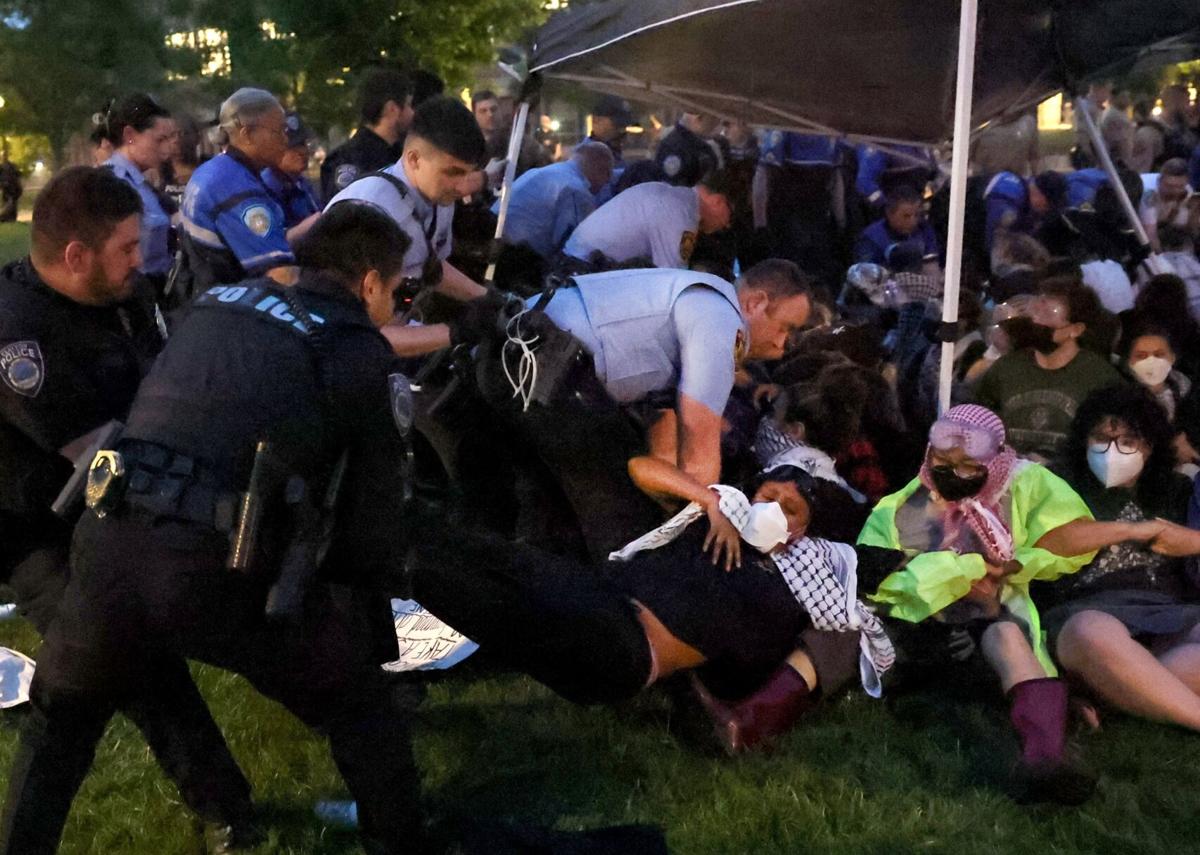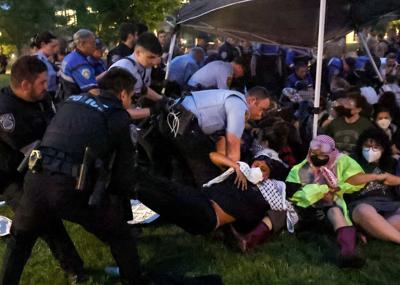A great paradox in modern American culture is how politically divided we are as a nation but how ideologically similar our friendships have become.
It’s harder to get a sense of how most people feel about an issue when most of the people around you feel the same way.
Polls are an educated guess, which can be easily skewed, but elections offer more solid insights.
So, it was fascinating to see the results of a recent faculty vote at a university embroiled in controversy about its student protests about the war in Gaza and a subsequent police crackdown on campus. Washington University resides in a blue bubble in a deep red state. The campus has historically had a high percentage of Jewish students, with 24 percent of current undergrads identifying as Jewish. The Anti Defamation League ranked it as better than most universities at combating anti semitism on campus. On college boards frequented by parents and applicants, it is often mentioned as a place Jewish students should consider transferring if they feel unsafe at their universities.
People are also reading…
WU’s full-time faculty considered two resolutions focused on the protests against the university’s ties to Boeing, which sells warplanes and munitions to Israel for use in the war in Gaza. Police arrested 100 people at an April 27 protest, with several students and faculty suspended by the university administration.
The first resolution called for the university to decline to pursue all charges and rescind suspensions against the students and employees. A second resolution sought to create a faculty-led committee to investigate the protests and the administrative policy involved. The first resolution failed with a vote of 550 in favor, 552 against and 52 abstaining. The second overwhelmingly passed.
The vote breakdown by the various schools within the university revealed a more nuanced picture that also reflects broader societal attitudes.
For the schools on the main Danforth campus, where undergrads and most graduate departments reside and where the protests took place, the voting wasn’t close at all. Among the Arts and Sciences faculty, 210 supported dropping penalties for pro-Palestinian protesters versus 80 opposed, with 17 abstaining. Similarly large majorities of faculty in the Brown School of Social Work, Sam Fox School of Design and Visual Arts and the law school supported the first resolution. These disciplines also tend to attract more liberal thinkers.
The faculty from the schools of engineering and business overwhelmingly voted against it. The medical school faculty, who are located a few miles away, voted 327 against to 245 in favor with 31 abstaining. These occupations tend to vote more conservatively.
Like the rest of America, political beliefs likely colored the way professors viewed the protests and the administration’s response to them. But the faculty members most heavily involved with teaching undergraduates and closest to the protests largely rejected the narrative that these protestors were violent or “pro-Hamas,” which is how critics have tried to portray them.
They know their students and colleagues.
By and large, faculty I’ve spoken to believe students have the right to protest and express their voices on how the university invests its money and their tuition dollars.
The faculty created a new committee charged with compiling evidence and testimonials about the protests and looking at the university’s policy for “demonstrations and disruptions.” The vote of 745 to 397 approving this signals significant faculty concern over the administration’s handling of the protests.
The committee would have faculty representatives from each of WU’s schools, along with representatives from the student body and administration. A letter from Chancellor Andrew Martin emailed to faculty in response on Thursday said the Board of Trustees would need to respond to any formal inquiry about university operations. He offered to share the results of a board-led review, as deemed appropriate by the board and possibly answer specific questions, rather than agreeing to participate in a faculty-led review. Andrew Burksy, chair of the Board of Trustees, sent a follow up letter stating the university would not participate in any faculty inquiry.
He said the board initiated its own review and a parallel faculty-led review would be “counter-productive” and “inconsistent” with seeking clarity and understanding around the issues.
Unlike the silos in which many of us live and work, this faculty effort had been an attempt to bring together those with meaningful disagreements on these contentious and sensitive issues. The faculty may decide to move forward with some sort of inquiry regardless. Given the tumultuous political landscape and the prospects for renewed protests when students return in the fall, there’s some urgency to their work.
Their report would have shed light on the facts rather than perceptions and spin.
It is revealing that the chancellor punted to its board, and the board shut down what the faculty overwhelmingly voted to do.
We’ve seen how much students’ voices matter to the administration on this issue.
Now the faculty has found out about their own.
������Ƶ columnist Aisha Sultan talks about why she loves working for the paper.














